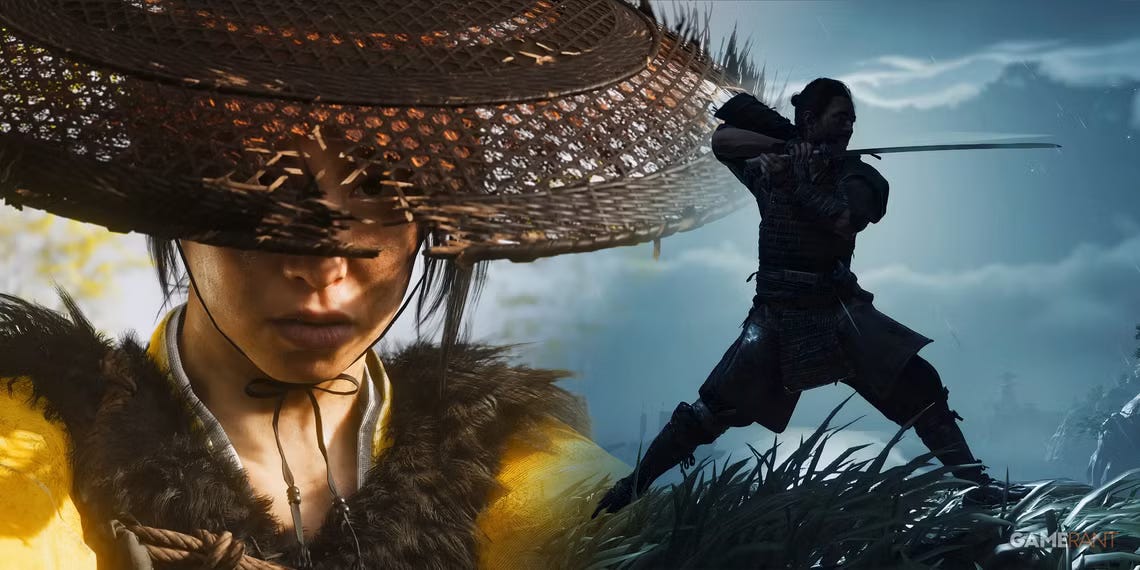Why Ghost of Yotei's Atsu Could Be a More Complex Protagonist Than Tsushima's Jin
Ghost of Yotei’s protagonist, Atsu, may surpass Jin Sakai in complexity, offering a fresh perspective with her unique struggles as a female ronin and her morally ambiguous quest for vengeance.
While Ghost of Tsushima captivated players with Jin Sakai’s journey, Ghost of Yotei promises to evolve the Ghost concept, with its new protagonist, Atsu, who may prove to be a more intricate character than her predecessor. Although Jin’s internal conflict between tradition and survival made him a compelling figure, Atsu’s status as a female ronin in feudal Japan adds a new level of depth that could reshape the narrative of the Ghost franchise.
Atsu’s Gender and Status Complicate Her Path
A major differentiator between Jin and Atsu is their gender. In a time when samurai culture was dominated by men, Atsu’s role as a female warrior automatically complicates her journey. While women in feudal Japan had some instances of involvement in martial combat, they were typically expected to manage households and support their husbands rather than fight. As an "onna-musha" (female warrior), Atsu’s presence in battle challenges gender norms, making her a more complex protagonist in a male-dominated society.
Players may witness how Atsu’s gender impacts her relationships with others, particularly men who may underestimate or dismiss her abilities. With Ghost of Yotei focusing more on player choice, Atsu’s ability to navigate a patriarchal society could directly influence the gameplay. From infiltrating enemy ranks to earning the respect of other warriors, Atsu’s journey will likely require more cunning and creativity than Jin’s did in Ghost of Tsushima.
Furthermore, Atsu’s identity as a ronin intensifies her isolation. Unlike Jin, who carried the weight of his family’s legacy as the last member of Clan Sakai, Atsu lacks a supportive family or clan structure, making her an outcast. This removes the safety net Jin had and places Atsu in a much more vulnerable position, where forging bonds and alliances will be harder.
A Story of Vengeance That May Blur Moral Boundaries
Atsu’s quest for vengeance introduces a darker and morally ambiguous narrative, which could offer greater depth than Jin’s story. While Jin’s transformation into the Ghost involved morally gray decisions, his actions were ultimately driven by a desire to protect his home and loved ones. Atsu’s pursuit of vengeance, however, appears to be more personal and potentially far less noble.
Vengeance is a complicated theme, often pushing characters into morally questionable decisions that challenge their own sense of right and wrong. Atsu’s journey could force players to confront the cost of revenge and whether it’s truly worth the sacrifice. Her story promises to explore the complexities of justice, loyalty, and self-preservation, creating an experience that may delve even deeper into the internal struggles of a protagonist than Jin’s did.
Expanding the Ghost Concept
While Ghost of Tsushima centered on Jin’s conflict with the samurai code and his uncle, Lord Shimura, Ghost of Yotei expands the scope of what a "Ghost" can be. Atsu’s challenges go beyond external enemies; they encompass societal expectations, the weight of isolation, and the moral repercussions of vengeance. In doing so, Atsu’s journey has the potential to reshape the Ghost narrative into something even more multifaceted, offering a protagonist who struggles with both personal and societal forces.
As Ghost of Yotei continues to reveal more about Atsu’s story, it’s clear that the game could take the Ghost of Tsushima series into new and more complex territories. Atsu’s struggle as a female ronin in a male-dominated world, combined with her internal battle over vengeance, suggests that her character may become one of the most layered and compelling protagonists in recent gaming history.


